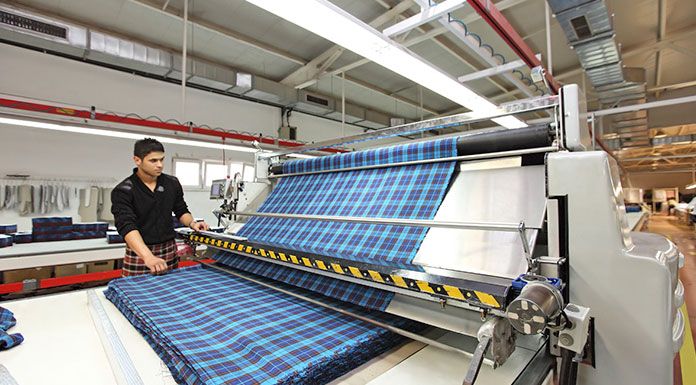
A great automation and digital transformation awaits the textile and apparel industry. Changes in traditional production markets show us that the industry is looking for more efficient production methods. China still maintains its traditional power, investments in the African market are reviving and the US shifts its supply chain to nearby regions says the ITMF General Manager, Dr. Christian Schindler.
According to market researches, the global textile market is expected to reach 1.23 trillion dollars by 2025. The shift in production locations and models that have been dominant for a long time, the increasing impact of digitalization, the increase in demand for sustainability-oriented solutions and more textile innovations for technical applications stand out as important developments in this process. We talked the today and tomorrow of the textile industry with the International Textile Manufacturers Federation’s (ITMF) General Manager, Dr. Christian Schindler.
Saying that the global economy is now in a difficult period, Schindler pointed out to the weakening of the long economic growth cycle since the 2008/2009 financial crisis. In addition, he noted that the trade dispute between the United States and China, the two largest economies, and the yet unresolved Brexit aggravated the economic growth. Schindler argued that the entire textile value chain, from the fiber to the fashion industry, is facing two main challenges. “First, the accelerated digitalization of the entire industry is forcing all players to adapt” said Schindler and continued saying that the fast fashion is becoming the new normal and the industry should adapt by developing new business models. Second, Schindler stated that more and more textile apparel manufacturers should adapt to the growing demand for sustainability.
Christian Schindler; “China still dominates textile investments”
Indicating that the textile and apparel industry adapt to the Industry 4.0 and digitization very quickly; Christian Schindler, noted that particularly due to rising labour costs, the need for automation; and its implementation became more urgent in major textile manufacturing countries such as China, India and Turkey. Schindler said that the need to invest more in eco-friendly technology continues today; and provided the following information about the investment trends in the global market;
“In the last 15 years approx. 90% of all new investments in new textile machinery was going to Asia. Within Asia, China has been during this period the dominant investor absorbing by far the bulk of this investment (around 30-70% of global investment depending of the textile machinery segment). Apart from Egypt and lately Ethiopia; hardly any country in Africa has attracted any significant investments in the past 15 years. Nevertheless, it can be observed that brands and retailers are looking increasingly at Africa as a sourcing destination. They are mainly looking at sourcing apparel from Africa. The reasons are multi-fold. Relative low labour costs play a certain role, though productivity in many African countries is lagging the Asian levels. In addition to relative low labour costs, preferential market access to Europe and the USA plays an important role as does the geographical proximity to European and the US markets”.
Turkey remains competitive through textile investments
Highlighting Turkey as a major global player in textile and apparels industry; Christian Schindler said that Turkey has stayed a competitive manufacturer by investing in new textile machinery. “Currently, the industry is undergoing a difficult period with relative high capital costs and difficult access to capital,” said Schindler and continued; “The Turkish textile and apparel industry is well known for producing high quality products for the medium and upper segments. Its geographical proximity to the European, Central Asian and Middle Eastern markets allows quick delivery times; that certainly prove to be a big advantage when it comes to fast fashion”.
Key points in new textile investments in the US are costs
Christian Schindler said that the new textile machinery investments in the US are relatively low compared to the investments in Asia; but that the US textile industry has advantages such as low energy and capital costs. Pointing out that US can produce all kinds of fiber such as cotton, synthetic and cellulosic fibers; Schindler advocated that due to the high labour costs, significant part of traditional textile and apparel production cannot be brought back to the country. Schindler stated that investments in high value-added production and technical textiles in the US will continue; and that more textile and apparel investments could be made in Mexico and Central America due to geographical proximity and lower labour costs.
Christian Schindler said the ITMA 2019 exhibition will most likely focus on sustainability-oriented and environmentally friendly technologies; such as reducing energy and water consumption. Schindler noted that investments in new technologies within the framework of Industry 4.0 will increase in the industry; and added that with the help of new technologies, the industry can become better, faster, more productive and environmental friendly.


